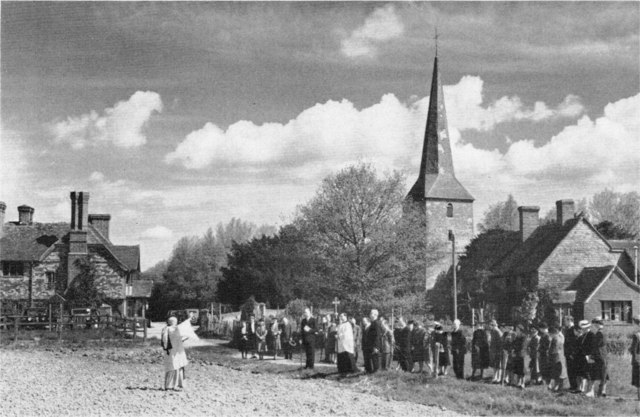 ut
ut
Yesterday, my Episcopal Congregation traveled to a member’s farm to celebrate Rogation Sunday. Since the ceremony involved a blessing of the fields, I assumed that the definition of Rogation would involve a few words about agriculture. But the word “Rogation” is defined as a request.
For over 1,000 years, the term “Rogation” has been linked to a period in the Church Calendar designated to ask for blessings for the fields or for farming efforts.
Specifically, Rogation Sunday is the Sunday before the Church celebrates the Ascension of Christ to Heaven — After he was Crucified and Rose from the Dead on Easter Sunday. The Ascension of Christ is celebrated 40 days after Easter.
Rogation Sunday is 36 days after Easter or 4 Days Before the Celebration of the Ascension.
Like many other Church Festivals and Holidays, Rogation Sunday was established to occur at the same time as a Pagan Festival had occurred:
“The Major Rogation (from Latin rogare, “to ask [for God’s blessings and mercy]”) originated as a Christian festival to supplant a pagan Roman festival, Robigalia, which consisted of a procession from Rome to a point outside the city, where a dog and a sheep were sacrificed to save the crops from blight (robigo, “wheat rust”). According to a document of Pope Gregory I, the Christian festival was established as an annual event by the year 598. The Christian procession followed the same route as the pagan procession for a certain distance and then turned off and returned to St. Peter’s Basilica, where mass was celebrated.” Britannica
The three days after Rogation Sunday are Minor Rogation Days. Rogation Days were also established to supplant Pagan Holidays.
“The Minor Rogations were first introduced in Gaul by St. Mamertus of Vienne about the year 470 and were made binding for all of Gaul by the first Council of Orléans (511). Later (c. 800) the festival days were adopted in Rome by Pope Leo III. It is possible that Mamertus first instituted the Minor Rogations to replace three days of pagan crop processions called the Ambarvalia. The Minor Rogations were traditionally observed with processional litanies and fasting as a supplication for clement weather for the crops and deliverance from pestilence and famine. In 1969 the Minor Rogations were changed to votive masses.” Britannica
Ancient Pagan Holidays Celebrated Today–Some of Them Are Celebrated as Christian
Discover more from Jacki Kellum
Subscribe to get the latest posts sent to your email.